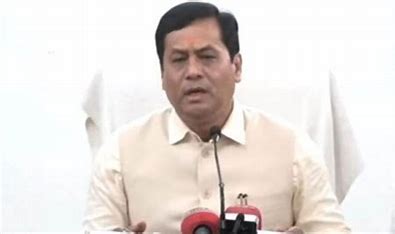While campaigning for BJP candidate Diganta Ghatowal in the Behali Assembly bye-election, Union Minister Sarbananda Sonowal accused the Congress of being synonymous with “communalism, corruption, and conflict.” He claimed the party’s past governance was marked by divisive tactics for political gain.
BJP’s Vision of Nation-Building
Sonowal contrasted Congress’s alleged misdeeds with the BJP-led NDA government’s focus on nation-building. He emphasized Prime Minister Narendra Modi’s vision of Atmanirbhar Bharat and the guiding principle of “Sabka Sath, Sabka Vikas.”
Development and Progress Under NDA
Highlighting the strides made under Modi’s leadership, Sonowal noted a significant transformation in Assam and the Northeast. “The NDA government champions progress, equity, and dignity for every Indian,” he said, adding that BJP’s governance has empowered communities and uplifted lives across the nation.
Call to Action for Voters
Urging voters to reject Congress, Sonowal said, “When you vote, choose nation-building over corruption, communalism, and conflict. The future of India depends on the choices we make today.”
Support from Party Leaders
Sonowal’s campaign was bolstered by the presence of senior Assam ministers and BJP leaders, including Sanjay Kishan, Piyush Hazarika, and Union Minister of State Pabitra Margherita, among others.
Conclusion
As the Behali bye-election draws near, BJP aims to consolidate its position, promoting a development-focused agenda while highlighting the flaws of past Congress regimes.























